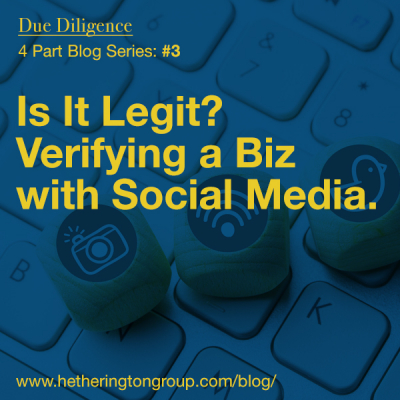 By Rachel Kronenfeld, Hg’s Manager of Investigations
By Rachel Kronenfeld, Hg’s Manager of Investigations
In business, one often hears the classic query: “How did you hear about us?” The ways in which people find a business have expanded over time, from word of mouth, the media, company websites, social media, or a phishing email. While all these forms of advertisement can be used to market a legitimate business, they can just as easily be used to market fraudulent businesses, even shell companies.
When a client comes to you wanting to know whether a business is legitimate, they may have an abundance of identifiers to provide you or maybe just a parcel of information, such as a friend’s recommendation, or a business card swapped on a flight between two seat mates. To help answer the questions about a real, or not real, enterprise, the investigative instinct is to gather more identifiers, ask more questions, and understand the purpose of the company for their investigation. Yet, sometimes that ready data isn’t available. To solve for lacking given information—and to stretch our critical research ability—we offer a fresh approach.
This approach reviews a variety of ways in which, despite being given limited information, you may be able to quickly determine if a company is a truly established business. Granted, when going into an investigation, the more information had ahead of time will allow for quicker fact checking. However, researchers are accustomed to working with little information, smaller budgets, and impossible deadlines.
In this 4-part series, we present four research routes when conducting due diligence investigations with little data on hand: Email, company website, social media, and business name. The following vet-by-data approach, handled by professionals, will give you an advantage to researching your client’s potential new lead. Last week we offered a Company Website checklist. This week, we provide the Social Media checklist to help you determine the possible legitimacy of a correspondence.
Social Media
Searching social media is a common method for someone to find a business or to be contacted by one. If your client comes to you with only a social media profile for the company, here are a few quick vetting tips. Similar across many social media platforms is the ability to see followers. At first glance, having a large amount of followers creates the appearance that the company is established. However, an investigator should look at who those followers actually are. If they appear to be bots, or people from across various industries which do not really relate to the business, these are indicators that the company does not have the credibility you may have thought. Another tip is to check to see who is talking about the business on that platform. The business may be making claims of success and a great reputation, but not a single person outside their profile is mentioning them. This can be yet another red flag.
If you were given a company page from Facebook, Facebook includes a section for reviews. Check to see if there are business reviews for the company. If there are no reviews or ratings for the business, this is an anomaly. A legitimate company marketing on social media will always have some reviews or ratings, unless perhaps the company page was just recently created. If they do have reviews, read them to determine if they appear legitimate. There are some common indicators to determine if reviews are fake, such as questionable names with stock photos, common use of first-person singular, references to other people, or simply reviews that sound like a marketing brochure. Beyond reviews, you can also search for any employees who work for the business. LinkedIn is a common place for employees to add their company to their profile. If you cannot locate any employees or former employees that worked for the company, this may be questionable and require additional research.

Are you an analyst or investigator looking for advanced training on due diligence? If so, check out Hg’s webinar series, where you can attend live sessions and receive CEUs or watch previously recorded sessions to beef up your OSINT skills.

Are you interested in working with a company but unsure if it’s legitimate? As veteran investigators in due diligence, Hg understands the business world and the legal and regulatory frameworks in which corporations and privately held companies operate. Our skilled analysts excel at exposing financial risks, reputational issues, criminal activity, and legal actions detrimental to your personal and business stability. Learn how our team can arm you with the data you need.
 Rachel Kronenfeld joined Hetherington Group in 2016 and is Hg’s Manager of Investigations and lead investigator. As a skilled and diverse analyst, she monitors current events and information on the Internet, identifies security threats, and conducts online risk assessment analyses for Hg’s clients. Ms. Kronenfeld conducts trainings for investigators and is a contributing writer to Hg’s newsletter, Data2Know. Her professional research specialty is Open Source Intelligence (OSINT) techniques.
Rachel Kronenfeld joined Hetherington Group in 2016 and is Hg’s Manager of Investigations and lead investigator. As a skilled and diverse analyst, she monitors current events and information on the Internet, identifies security threats, and conducts online risk assessment analyses for Hg’s clients. Ms. Kronenfeld conducts trainings for investigators and is a contributing writer to Hg’s newsletter, Data2Know. Her professional research specialty is Open Source Intelligence (OSINT) techniques.



